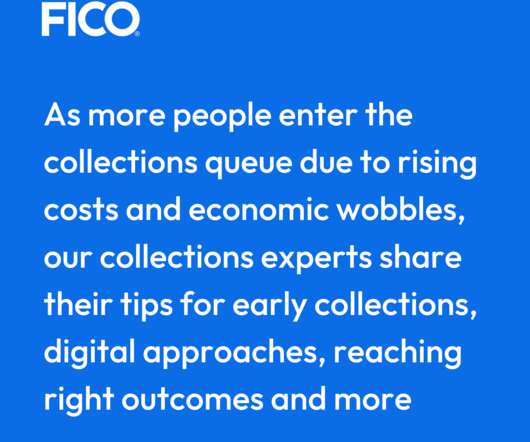RMAI Update March 2023
RMAi Blog
MARCH 14, 2023
Nevada AB 223 – This bill would require debt collectors to provide a payoff letter within 10-days of a consumer request. New York AB 1035 – This bill would prohibit debt collectors from communicating with consumers through the use of email, text messaging, or private communication tools offered by social media companies.













Let's personalize your content